aNewDomain — My son wanted to watch a movie. It was his reward for meeting the behavior standards of school for a week. That day, he wanted to see if there was something good in the free section of the On Demand library.
We scrolled through and found “The Hunger Games” was listed. But he said: “No, I want Marvel.”
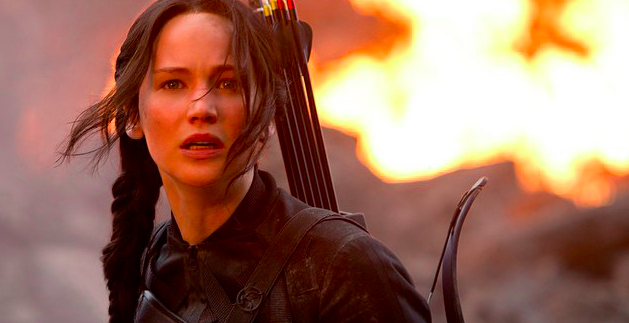 Trying to get metacognition from a ten-year-old can be difficult, but I wanted to know why. Why Marvel but not Katniss Everdeen?
Trying to get metacognition from a ten-year-old can be difficult, but I wanted to know why. Why Marvel but not Katniss Everdeen?
I think he didn’t want to watch a film with a female protagonist, and he knew better than to tell me so. By and large, ten-year-old boys want to see big men solve problems with brute force. I know I wasted a lot of time on Schwarzenegger movies, Michael Dudikoff, Steve James, Bruce Lee. Anything with a ninja or a samurai in it. I even watched “Teenage Mutant Hero Turtles,” though we weren’t actually allowed to say ninja in England in the 1980s, which is weird on refection.
Anyway, we ended up watching “Pacific Rim,” which is a great movie — so long as you are shaky on all of the physical sciences. But giant robots punching monsters in the face? With your ten-year-old son? Not a bad waste of two hours.
So I watched “Hunger Games” myself a few days later, as background noise to grading papers – mostly because I had noticed my own resistance to the movie. I hope this did not result from any anti-feminist urges but if we’re being real we have to examine the possibility.
Truthfully, though, I think the resistance comes from a general distrust of kid lit.
Youth fiction has gotten really stale, boring, predictable. It’s gotten bad, even — and bad for us.
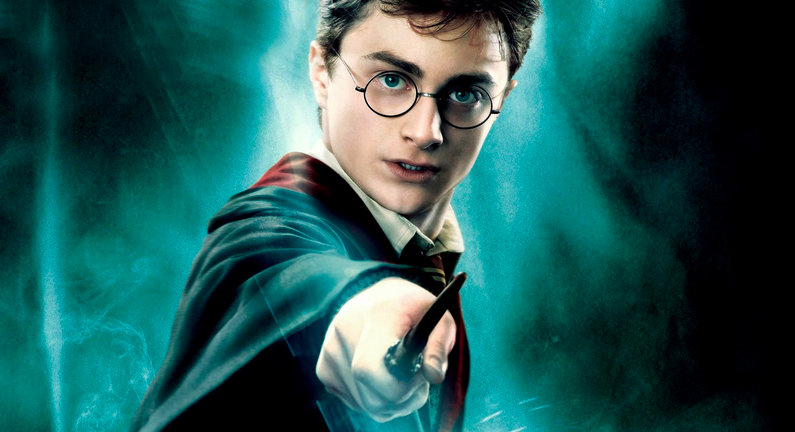 Kid turns 17. Kid discovers he has special powers. Kid discovers he has enemies who hate him for his powers. Kid’s powers defeat enemy through no particular effort on his part. Kids buy the book or see the movie in droves, thinking they, too, might get an invitation to Hogwarts in the male one day.
Kid turns 17. Kid discovers he has special powers. Kid discovers he has enemies who hate him for his powers. Kid’s powers defeat enemy through no particular effort on his part. Kids buy the book or see the movie in droves, thinking they, too, might get an invitation to Hogwarts in the male one day.
Oh — did I say male when I meant mail? I wonder how that might have happened.
Harry Potter might be the worst offender. It’s fashionable among us struggling writers to bash successful ones, and I don’t want to do that. Rowling is, by all accounts, a lovely person. And she’s very successful. So what do I know?
I know this: I hate that my son loves her books.
Harry Potter is no hero to aspire to. He is whiny, self-indulgent, self-obsessed. His internal struggles are endless and quite dull. And he rarely has to make any brave choices.
He didn’t choose to go to Hogwarts, he had to. A choice between being treated as a conquering hero for no reason or comically exaggerated abuse at home is no choice at all. Disobeying the schoolmaster to chase his friend’s trinket was the stupidest possible response to provocation. Choosing Ron and Hermione as his friends because he met them before Malfoy might have been the very thing that lead Malfoy astray — nobody likes to be rejected.
Potter always wins because of who he is, not what he does. His friends are smarter than him. Hermione solves all the technical problems, swots away so Harry can play sports (where he wins all the time through natural ability and never through effort), cheat on tests, and generally not go at all out of his way to succeed.
In the first book, he defeats the evil Voldemort because his mother loved him. He walks straight into a stupid trap like a stupid child but the bad guy can’t touch him because of love. He doesn’t have to do anything at all. Ron has to sacrifice himself; Hermione has to know things she studied in books. Harry just has to show up.
Hermione even praises Harry for his simply being him. There are more important things than books and studying, like friendship. Or white, male privilege, she ought to add.
Potter is not at all alone here. Look at Percy Jackson.
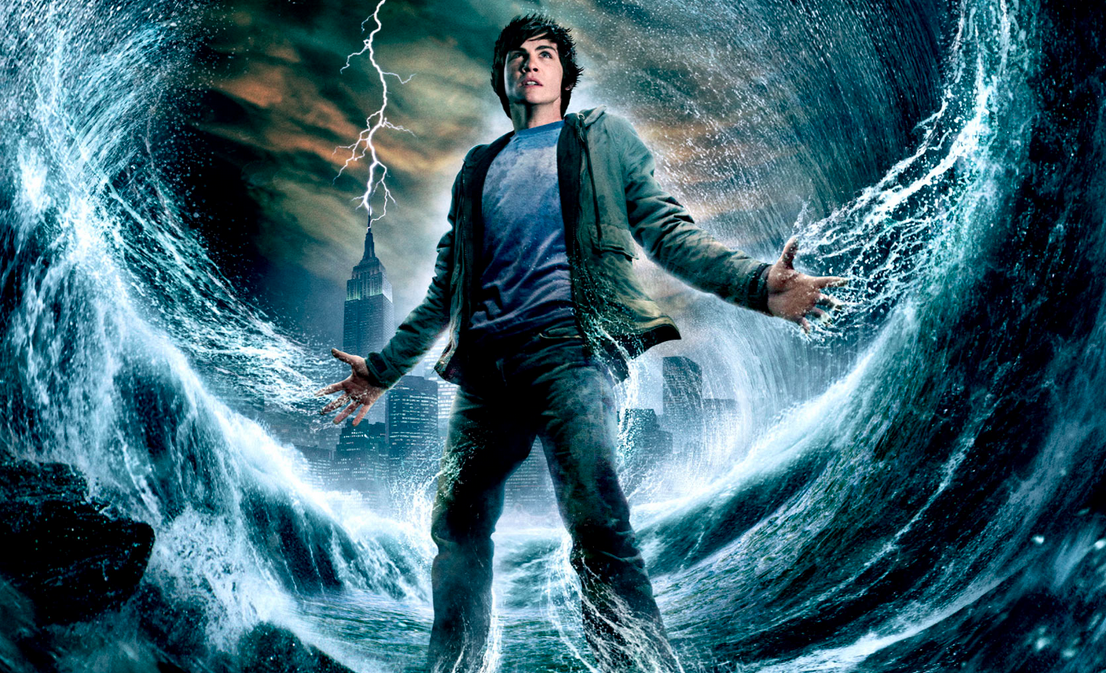 Percy finds out he’s a god, or at least a demigod. In his first training session, a bizarrely warped game of Capture the Flag that completely lacks any strategy or tactics, he’s getting his ass kicked by someone with better skills, more talent and years of experience. But all Percy has to do is touch water and all his problems are solved. His dad is a more important god than his opponent’s mom, so Percy suddenly heals up, gets super powers and kicks everyone else’s tail.
Percy finds out he’s a god, or at least a demigod. In his first training session, a bizarrely warped game of Capture the Flag that completely lacks any strategy or tactics, he’s getting his ass kicked by someone with better skills, more talent and years of experience. But all Percy has to do is touch water and all his problems are solved. His dad is a more important god than his opponent’s mom, so Percy suddenly heals up, gets super powers and kicks everyone else’s tail.
Privilege turns the tables. Jackson doesn’t have to do anything brave; he can just trust in his powers. His dad wakes him from the lotus trance just like Harry’s wand spontaneously stops a killing curse from Voldemort.
Just think of all the kid-lit and youth fiction you like. Luke has the Force. Buffy is a slayer. You were born to be a vampire, a werewolf, a fairy; your father is really king of a galactic empire; you’re a Furian without human limitations.
Amy Chua, in her controversial Battle Hymn of the Tiger Mother, suggests we are praising our children too much and for the wrong things. We call them smart and pretty but don’t praise their efforts and actual achievements. We don’t scold them for not trying or point out when their grades are too low. We take their side in teacher conferences, blame the teachers and the schools and circumstance. We don’t make them practice, study, practice again.
And the fiction they love reflects these tendencies. Harry isn’t brave; Jackson isn’t brave. They are privileged and win because they deserve to, because they were born to.
Now enter Everdeen.
Katniss is pretty good with a bow – because she has to be. If she can’t shoot a pigeon on the wing, she doesn’t get to eat. Beyond that, she lacks super powers. She’s mortal, lives in a society in which she can’t expect to marry a rich man and be taken care of, can’t fly or punch through steel or shoot lasers out of her eyes.
 She’s in the fight because of a choice: to suffer and risk death in order to protect her sister. She wasn’t born as a tribute or to lead a revolution.
She’s in the fight because of a choice: to suffer and risk death in order to protect her sister. She wasn’t born as a tribute or to lead a revolution.
And she relies on others without being dependent on them. She forms bonds of trust and affection that are mutual.
God does not descend on a rope to save her. She does most of the saving and rescuing. At one point a boy from another district saves her life – only because she helped and cared about his sister.
Katniss is everything Potter isn’t. She’s outwardly focused, there to help, be of service. She’s brave. Her choice was not obvious and carried a great deal of risk. And she’s not privileged. She doesn’t win because society thinks she deserves to, but because she works hard, makes good choices, trains her talents into skills.
I was at a writing conference recently, and I asked my companions at lunch whether we needed to accept a market-driven publishing system – with white men in charge of what gets published and buyers determining what trends or is popular. Don’t we have a responsibility, I suggested, to help people know about books that are better for them than the stuff they like naturally?
The answer, overwhelmingly, was that we can’t tell people what is good for them. That’s why we don’t like Chua that much. Because Americans believe that with all our hearts. Don’t tell me not to smoke. Don’t tell me how much to drink. Don’t tell me to lose weight and exercise.
But I beg to differ. We can and must tell people what is good for them — but people can choose to listen or not, and we certainly can’t tell people what to like or believe.
When it comes to smoking, we have quit so much that our tobacco industry has largely moved overseas. McDonalds is closing 700 stores next year, because the information about what food is bad for you and what is good has started to land. Racism is dying (oh, so slowly, and like Jason Vorhees it keeps standing up for one more ovation on its way out) as is opposition to gay marriage.
We can and must tell people what is good for them, even if we can’t say what is good.
People love Harry Potter. What can I say? If it gets my son reading, who really cares what it is in the end? But if Potter is good, then Everdeen is better. And not fake better like gluten-free bread, but actually better like an apple next to a bowl of bacon grease.
And writing things of substance is surprisingly not hopeless. The best, my favorite thing about “The Hunger Games,” the book and the movie, is that people like them. They made shit-tons of money.
See, we don’t have to keep writing the same tired stories of powers and privilege. People are hungry for something more and better. Come on, writers. Let’s give it to them.
For aNewDomain, I’m a novelist you’ve never heard of, Jason Dias.
Cover image: By Jdarn010 (Own work) [CC0], via Wikimedia Commons


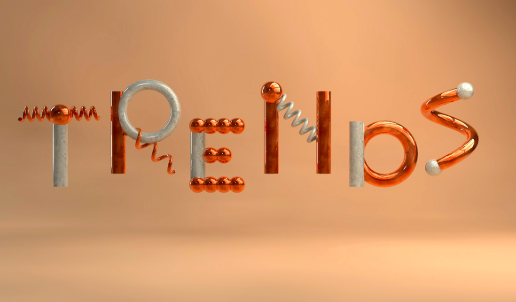
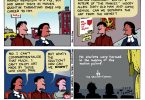
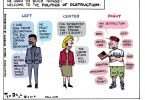








Never thought of it this way.
I was disagreeing in my head because I love the Harry Potter books — but when you brought up Katniss, I realized that the Harry Potter character is exactly the male kid equivalent of Princess stories that are so destructive to young women: They don’t have to do anything, or learn, or evolve, or struggle–they are just born wizards, or beautiful, or a princess–and it’s all handed to them.
The perfect dream – for a kid who’d rather be discovered by a Hollywood agent or rich man, or wake up with magical powers from nowhere, rather than study and practice and think and battle with real demons.
Hmmmph! Hadn’t thought of that. Thanks, Jason.